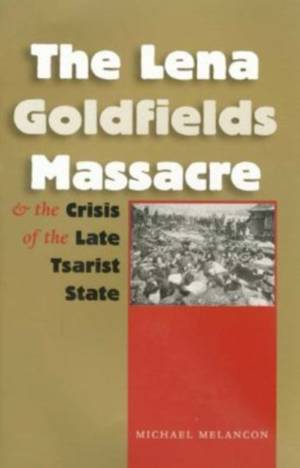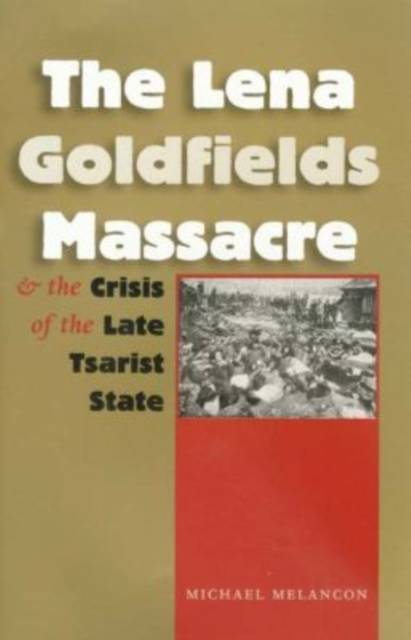
Bedankt voor het vertrouwen het afgelopen jaar! Om jou te bedanken bieden we GRATIS verzending (in België) aan op alles gedurende de hele maand januari.
- Afhalen na 1 uur in een winkel met voorraad
- Gratis thuislevering in België vanaf € 30
- Ruim aanbod met 7 miljoen producten
Bedankt voor het vertrouwen het afgelopen jaar! Om jou te bedanken bieden we GRATIS verzending (in België) aan op alles gedurende de hele maand januari.
- Afhalen na 1 uur in een winkel met voorraad
- Gratis thuislevering in België vanaf € 30
- Ruim aanbod met 7 miljoen producten
Zoeken
The Lena Goldfields Massacre and the Crisis of the Late Tsarist State
Michael Melancon
€ 38,45
+ 76 punten
Omschrijving
In 1912 a thin line of Russian soldiers, confronted by a large crowd of gold miners on strike for several weeks, reacted with fear and anger. At their officers' orders, they opened fire, shooting five hundred unarmed protestors. The event reverberated across Russia. The Lena goldfields massacre can be viewed from several distinct viewpoints, each presenting a contrasting story. Author Michael Melancon avoids prematurely picking a "right" way of looking at the massacre. Instead, he explores all aspects of the incident, from the despair of the miners at the poor conditions they faced, to the calculations and priorities of the mining entrepreneurs and state officials, and even the rationale of the soldiers who pulled the triggers. The Lena Goldfields Massacre and the Crisis of the Late Tsarist State will appeal to anyone interested in labor relations, in revolutionary movements, and in transitions associated with modernization. Its comparative framework will be helpful for generalists and Europeanists. It will also provide food for thought for those who seek a carefully researched examination of Russian society during the early twentieth century.
Specificaties
Betrokkenen
- Auteur(s):
- Uitgeverij:
Inhoud
- Aantal bladzijden:
- 264
- Taal:
- Engels
- Reeks:
Eigenschappen
- Productcode (EAN):
- 9781585445080
- Verschijningsdatum:
- 27/01/2006
- Uitvoering:
- Paperback
- Formaat:
- Trade paperback (VS)
- Afmetingen:
- 155 mm x 232 mm
- Gewicht:
- 453 g

Alleen bij Standaard Boekhandel
+ 76 punten op je klantenkaart van Standaard Boekhandel
Beoordelingen
We publiceren alleen reviews die voldoen aan de voorwaarden voor reviews. Bekijk onze voorwaarden voor reviews.









